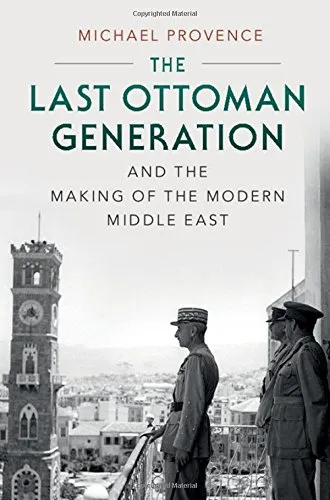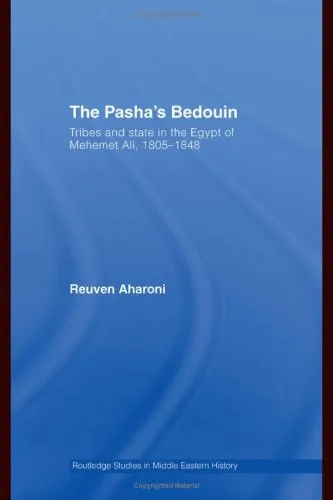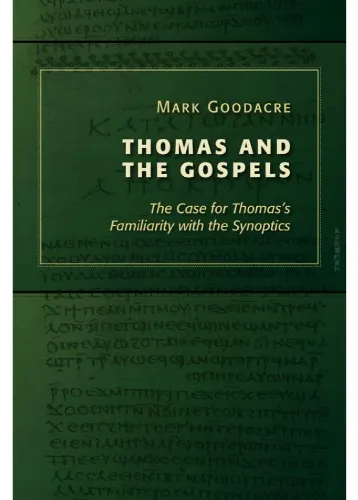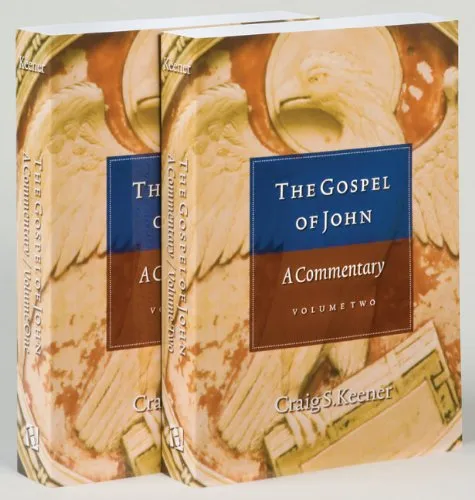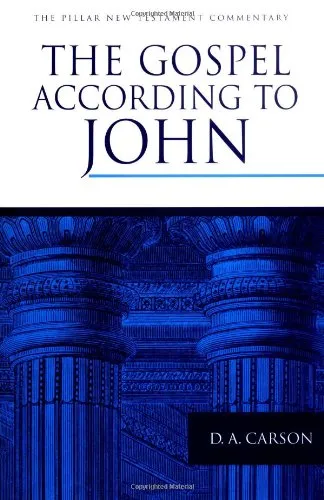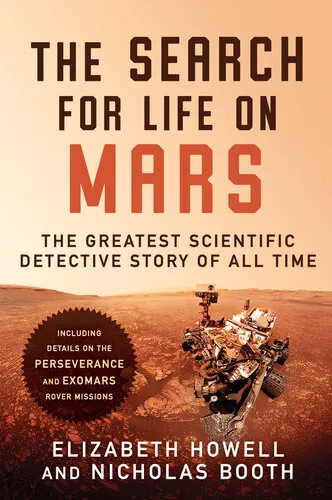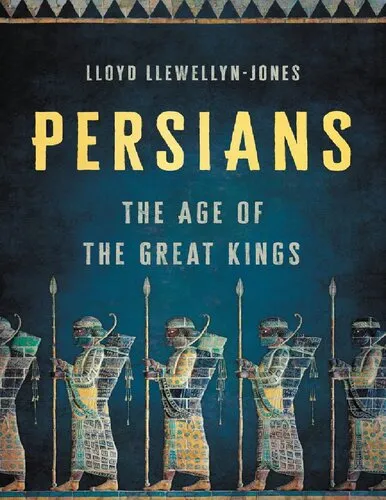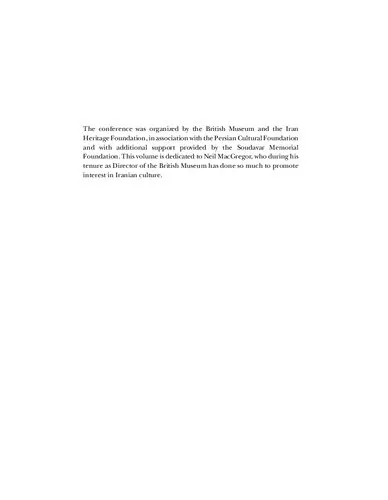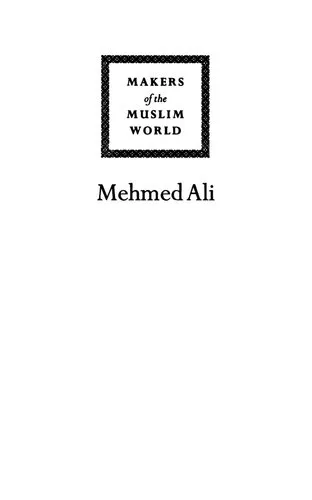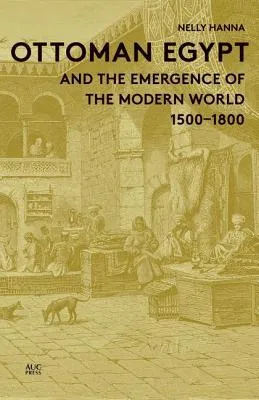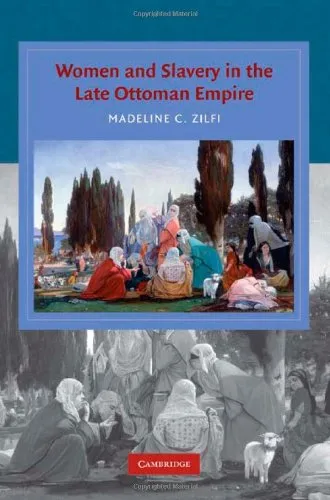The Last Ottoman Generation and the Making of the Modern Middle East
4.5
بر اساس نظر کاربران

شما میتونید سوالاتتون در باره کتاب رو از هوش مصنوعیش بعد از ورود بپرسید
هر دانلود یا پرسش از هوش مصنوعی 2 امتیاز لازم دارد، برای بدست آوردن امتیاز رایگان، به صفحه ی راهنمای امتیازات سر بزنید و یک سری کار ارزشمند انجام بدینکتاب های مرتبط:
کتاب «آخرین نسل عثمانی و شکلگیری خاورمیانه مدرن» یکی از آثار برجسته در مطالعات تاریخی و سیاسی است که به بررسی تحولات پیچیدهای میپردازد که جغرافیای سیاسی و فرهنگی خاورمیانه را در طول قرن بیستم شکل دادهاند. این کتاب خوانندگان را به عمق تاریخ میبرد و با معرفی بازیگران کلیدی، وقایع تاثیرگذار و پرسپکتیوهای جدید، تصویری جامع از دوران انتقالی بین امپراتوری عثمانی و دولتهای مدرن خاورمیانه به نمایش میگذارد.
خلاصهای از کتاب
در این کتاب تلاش شده است تا ورای روایتهای سطحی و رایج تاریخی، تصویری عمیقتر و انسانیتر از فروپاشی امپراتوری عثمانی در اوایل قرن بیستم و انتقال قدرت به ملت-دولتهای مستقل بررسی شود. نویسنده، با تکیه بر منابع آرشیوی، اسناد حکومتی و خاطرات بازیگران کلیدی، نشان میدهد که فروپاشی امپراتوری عثمانی و تقسیم آن به مناطق تحت کنترل قدرتهای استعماری غربی به شکل ناگهانی و مصنوعی اتفاق نیفتاده است؛ بلکه این فرآیند نتیجه دههها تلاش، مقاومت و تغییرات اجتماعی-فرهنگی بوده است.
یکی از موضوعات محوری کتاب، بررسی نقش نسل آخر عثمانی است که بیشتر از نظامیان، روشنفکران و دیپلماتها تشکیل میشد. این نسل، که اغلب بین سنتهای عثمانی و مدرنیته غربی گرفتار بودند، سعی کردند یک بستر برای حفظ هویت فرهنگی و استقلال سیاسی مردم منطقه ایجاد کنند. اما با عدم موفقیت آنها در برابر جاهطلبیهای قدرتهای خارجی مانند بریتانیا و فرانسه، بسیاری از این مناطق تحت قیومیت استعماری درآمدند.
یکی دیگر از موضوعات عمده کتاب، نحوه شکلگیری جامعههای مدرن خاورمیانه است که به دلیل دخالتهای استعماری ایجاد شدند. مرزهائی که به طور مصنوعی ترسیم شدند، اغلب بدون در نظر گرفتن روابط تاریخی، فرهنگی و قومی، به مجموعهای از تنشها و درگیریهای مداوم منطقهای تبدیل شدند.
نکات کلیدی
- تحلیل فرآیندهای پیچیده فروپاشی امپراتوریها و جایگزینی آنها با ملت-دولتها.
- بررسی عمیق نقش بریتانیا و فرانسه در شکلدهی به مرزهای فعلی خاورمیانه.
- مطالعه زندگی و فعالیتهای نسل آخر سیاستمداران و نظامیان عثمانی.
- ارزشگذاری بر آرمانهای استقلال و حاکمیت مردم منطقه در برابر امپریالیسم غربی.
نقلقولهای مشهور از کتاب
"امپراتوری عثمانی شاید از نقشههای جغرافیایی پاک شده باشد، اما میراث فرهنگی، سیاسی و اجتماعی آن هنوز در همه گوشه و کنار خاورمیانه به صورت زنده دیده میشود."
"فروپاشی، نه یک پایان بلکه آغاز دردی بود که ملتها هنوز در تلاشند تا معنایی برای آن بیابند."
چرا این کتاب اهمیت دارد؟
کتاب «آخرین نسل عثمانی و شکلگیری خاورمیانه مدرن» به این دلیل یک اثر مهم و قابل توجه است که به خوانندگان درک عمیقتر و جامعتری از علل تاریخی تنشها و بحرانهای جاری خاورمیانه میدهد. این کتاب، علاوه بر ارائه یک روایت تاریخی دقیق، از جانبداری سیاسی خودداری کرده و تلاش میکند تا تعاملات فرهنگی و اجتماعی بین مردم منطقه و قدرتهای استعماری غربی را به شکلی بیطرفانه بازتاب دهد.
برای پژوهشگران، دانشجویان، و هرکسی که به تاریخ خاورمیانه یا شکلگیری مرزهای مدرن علاقهمند است، این کتاب یک منبع ارزشمند شمرده میشود. علاوه بر این، پیام اخلاقی این اثر بر اهمیت حفظ استقلال و هویت فرهنگی در برابر سلطهطلبی سیاسی تاکید دارد که همواره یک موضوع جهانی و فرازمانی به شمار رفته است.
Introduction to "The Last Ottoman Generation and the Making of the Modern Middle East"
"The Last Ottoman Generation and the Making of the Modern Middle East" by Michael Provence offers an unparalleled examination of the human experience during the tumultuous transition from the Ottoman Empire to the modern nation-states of the Middle East. This groundbreaking work explores the far-reaching consequences of the collapse of the Ottoman order, delving into how the dismantling of centuries-old systems impacted the lives of those who lived through it. By focusing on the generation of elites, intellectuals, and reformists who inherited the Ottoman legacy, the book highlights how they navigated resistance, colonial intervention, and the formation of new national identities.
Provence draws on extensive archival research and firsthand accounts, weaving a narrative that challenges dominant historical perspectives rooted in European colonial frameworks. Through its five chapters, the book sheds light on the overlapping effects of World War I, European colonial ambitions, and the struggles for local autonomy and identity. By investigating specific lives, policies, and struggles, Provence humanizes a period often reduced to geopolitics, revealing the social and personal dimensions of history.
This introduction provides a detailed summary of the book, offers key takeaways, shares notable quotes, and explains why this scholarly yet accessible book bears immense significance for readers seeking to understand the complexities of the modern Middle East.
Detailed Summary of the Book
At its core, the book addresses how the disintegration of the Ottoman Empire fundamentally shaped the 20th-century Middle East. Provence presents the last generation of leaders and intellectuals trained under the Ottoman framework, exploring how their education, ideals, and political realities informed their struggles during and after World War I.
The book opens with an introduction to the vibrant sociopolitical panorama of the late Ottoman Middle East, emphasizing its intellectual ethos, reform movements, and attempts to create a just and cohesive polity. It then describes the immense pressure exerted by European colonizers as the war reshaped political and geographical boundaries. Throughout the chapters, Provence details how European mandates in territories such as Palestine, Syria, Lebanon, and Iraq undermined local governance and imposed artificial divisions.
Most poignantly, the book illustrates the obstacles faced by local leaders as colonial powers suppressed Pan-Arab nationalism and promised autonomy only to renege on these assurances. Provence argues that this betrayal led to disillusionment, sparking resistance movements that laid the groundwork for enduring regional conflicts and authoritarian regimes.
Key Takeaways
- The collapse of the Ottoman Empire was not merely a geopolitical shift but a deeply human and societal upheaval.
- Colonial powers prioritized the exploitation of Middle Eastern territories, dividing populations along artificial ethnic and sectarian lines.
- Attempts by the Ottoman generation to preserve unity and autonomy were systematically undermined by external forces.
- The roots of many present-day conflicts in the Middle East can be traced back to this transformative period.
- This book emphasizes the need to view history through the deeds and aspirations of those who lived it, rather than relying solely on imposed colonial narratives.
Famous Quotes from the Book
"The story of the Middle East of the 20th century cannot be understood without understanding the final years of the Ottoman Empire and its tragic dismantlement by external powers."
"The colonial system in the Middle East did not merely inherit a vacuum; it deliberately created one to fill with its own mandates and interests."
"The last Ottoman generation dedicated its lives to navigating a world they barely recognized, one where their ideals and futures were relentlessly contested."
Why This Book Matters
"The Last Ottoman Generation and the Making of the Modern Middle East" is not just a book about history; it is a critical exploration of how colonialism and conflict have defined the contours of the contemporary Middle East. By focusing on the Ottoman-trained generation, Michael Provence offers a much-needed counter-narrative to Eurocentric discourses that dominate the historiography of the region.
This book matters because it humanizes a pivotal historical transformation, reminding readers that the Middle East's struggles for self-determination were not born in isolation but stemmed from systemic exploitation and betrayal. It is an essential read for students of history, political science, and international relations, offering invaluable insights into the forces that shaped one of the world's most geopolitically contentious regions.
Beyond academia, this book has significance for anyone seeking to understand how the past reverberates today in the lives of millions. By presenting figures who strove valiantly against overwhelming odds, it instills greater empathy and awareness about the challenges faced by societies in the Middle East.
دانلود رایگان مستقیم
شما میتونید سوالاتتون در باره کتاب رو از هوش مصنوعیش بعد از ورود بپرسید
دسترسی به کتابها از طریق پلتفرمهای قانونی و کتابخانههای عمومی نه تنها از حقوق نویسندگان و ناشران حمایت میکند، بلکه به پایداری فرهنگ کتابخوانی نیز کمک میرساند. پیش از دانلود، لحظهای به بررسی این گزینهها فکر کنید.
این کتاب رو در پلتفرم های دیگه ببینید
WorldCat به شما کمک میکنه تا کتاب ها رو در کتابخانه های سراسر دنیا پیدا کنید
امتیازها، نظرات تخصصی و صحبت ها درباره کتاب را در Goodreads ببینید
کتابهای کمیاب یا دست دوم را در AbeBooks پیدا کنید و بخرید
1300
بازدید4.5
امتیاز0
نظر98%
رضایتنظرات:
4.5
بر اساس 0 نظر کاربران
Questions & Answers
Ask questions about this book or help others by answering
No questions yet. Be the first to ask!
